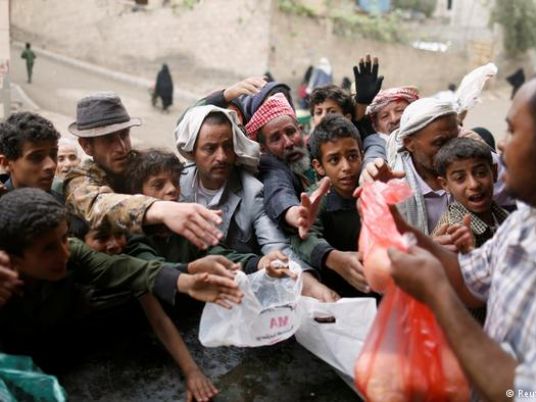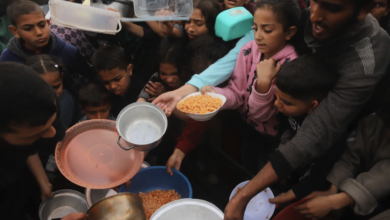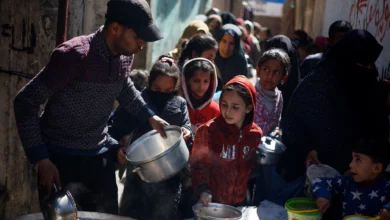
The UN refugee agency on Tuesday warned the risk that millions of people could starve to death in South Sudan and Somalia and neighboring countries, as well as in Yemen and Nigeria, was growing.
Drought, failed harvests and ongoing conflicts have meant that food insecurity and acute malnutrition rates were rising in areas where 20 million people live, UNHCR said.
An avoidable humanitarian crisis, possibly worse than the Horn of Africa drought in 2011 during which 260,000 people died – half of them young children – "is fast becoming an inevitability," UNHCR spokesperson Adrian Edwards told reporters in Geneva.
The International Committee of the Red Cross (ICRC) warned late last month that the rest of the world had three to four months to stop starvation in Nigeria, Somalia, South Sudan and Yemen.
Desperate situations worsening
Famine was already declared in parts of South Sudan in February. On Tuesday Edwards said that an additional one million people in the country were on "the brink of famine."
David Hermann, who coordinates operations in the country for the International Committee of the Red Cross, said the situation in Somalia was also "very, very dire." Growing displacement in the region was also impacting neighboring east African countries like Ethiopia, Uganda, Tanzania and Rwanda.
In Yemen about 60 percent of the war-ravaged country's population is going hungry, amounting to 17 million people.
Food insecurity is also growing in northern Nigeria and the Lake Chad region, particularly in the areas affected by the conflict with militant group Boko Haram. The UN counts about 7 million people at risk there.
Aid pledges fall short of need
Despite scaling up its operations, UNHCR has a funding shortfall. Its operations in South Sudan, Somalia and Yemen are funded at between 3 and 11 percent, Edwards said.
Overall, the UN has appealed for $4.4 billion for the four countries but to date has received less than $984 million, Jens Laerke of the UN's Office for the Coordination of Humanitarian Affairs said.
"It is of immediate urgency that more funds are committed to avert a further descent into disaster in these acute crises," Laerke said.
A high-level meeting called for by German Foreign Minister Sigmar Gabriel was due to be held Wednesday in an attempt to raise more awareness for the dire humanitarian situation in the affected countries.




